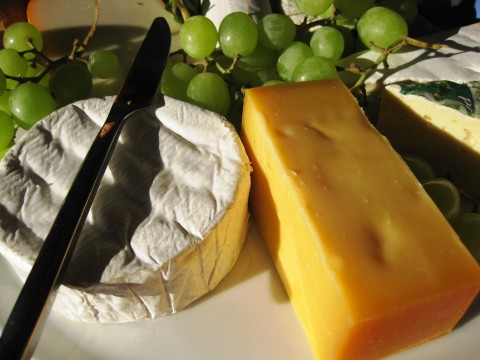For a healthy pregnancy, you must eat a balanced diet with a variety of foods, fruits and vegetables, proteins, grains, and dairy. There are essential nutrients for pregnancy that you need to get into your diet, such as calcium, folic acid and other B-vitamins, vitamin D, iron, vitamin C, and vitamin A. You will want to get these essential nutrients for pregnancy from food sources, but it’s important that you also take a prenatal vitamin to fill in the gaps. Your multivitamin doesn’t replace your healthy and balanced diet; it simply ensures that you’re getting enough daily vitamins and nutrients.
The 5 Essential Nutrients for Pregnancy

The five essential nutrients for pregnancy that you should pay attention to include the following:
- Calcium: Pregnant women need to get 1,000 milligrams of calcium into their diet. This is one of the most vital essential nutrients for pregnancy, as it helps your baby develop strong bones and teeth. Not to mention, it also aids in the normal function of your nervous system, blood circulation, and circulatory system. The best sources of calcium come from milk, yogurt, and other dairy products. You can also find fruit juice, breakfast cereals, and other food products that are fortified with calcium. Salmon (which is plentiful in omega-3 fatty acids) also contains this essential pregnancy nutrient.
- Vitamin D: This essential pregnancy nutrient goes hand-in-hand with calcium to help your baby grow strong bones and teeth. Pregnant women need 600 IU of vitamin D every day. You can find this nutrient in fatty fish (like salmon and tuna), fortified milk, dairy products, and orange juice and eggs.
- Folate and B-Vitamins: You need to get 800 micrograms of folate (called folic acid in its synthetic form) into your diet before you conceive and throughout your pregnancy. Folate is a water soluble B-vitamin that helps prevent neutral tube defects (which are birth defects of the brain and spinal cord). Good sources of folate include fortified breakfast cereals, leafy green vegetables, dried beans and peas, oranges and other citrus fruits.In addition to folate, you will want to get other B-vitamins into your diet, including B1 (thiamin), B2 (riboflavin), B3 (niacin), and B6 (pyridoxine). B-vitamins help you maintain energy, promote healthy skin, and regulate the regular bodily functions. B1 can be found in fortified cereals, whole grains, eggs, rice and pasta, legumes, pork, and nuts. B2, B3, and B6 are also plentiful in protein sources like meats, fish and poultry.
- Iron: All pregnant women need to get 27 milligrams of iron into their diet. This essential pregnancy nutrient helps your body produce hemoglobin, and it prevents anemia (which is a common complication in pregnancy). Not enough iron can lead to fatigue, preterm delivery, and low birth weight babies. You can find iron in food sources, like lean red meat, chicken and poultry, and fish. Iron is also found in fortified breakfast cereals.
- Protein: Another essential pregnancy nutrient, protein aids in your baby’s growth (especially in the second and third trimesters), and it helps with the production of amino acids. Pregnant women need to get 71 grams of protein every day. Protein can be found in lean meats, chicken and poultry, fish, and egg. Vegetarians can get protein in peanut butter, dairy products, lentils, and tofu.
It’s important that vegans and vegetarians get enough of protein as a part of their essential nutrients for pregnancy. When you don’t get enough of essential nutrients for pregnancy, you may experience severe fluid retention, weight loss, muscle fatigue, and frequent infections. All of this can put your baby’s growth at risk. So, you should focus on eating non-meat sources of protein for the health of your baby.
Thank-you for reading this post on the essential nutrients for pregnancy. Please leave your thoughts in the comment section below.